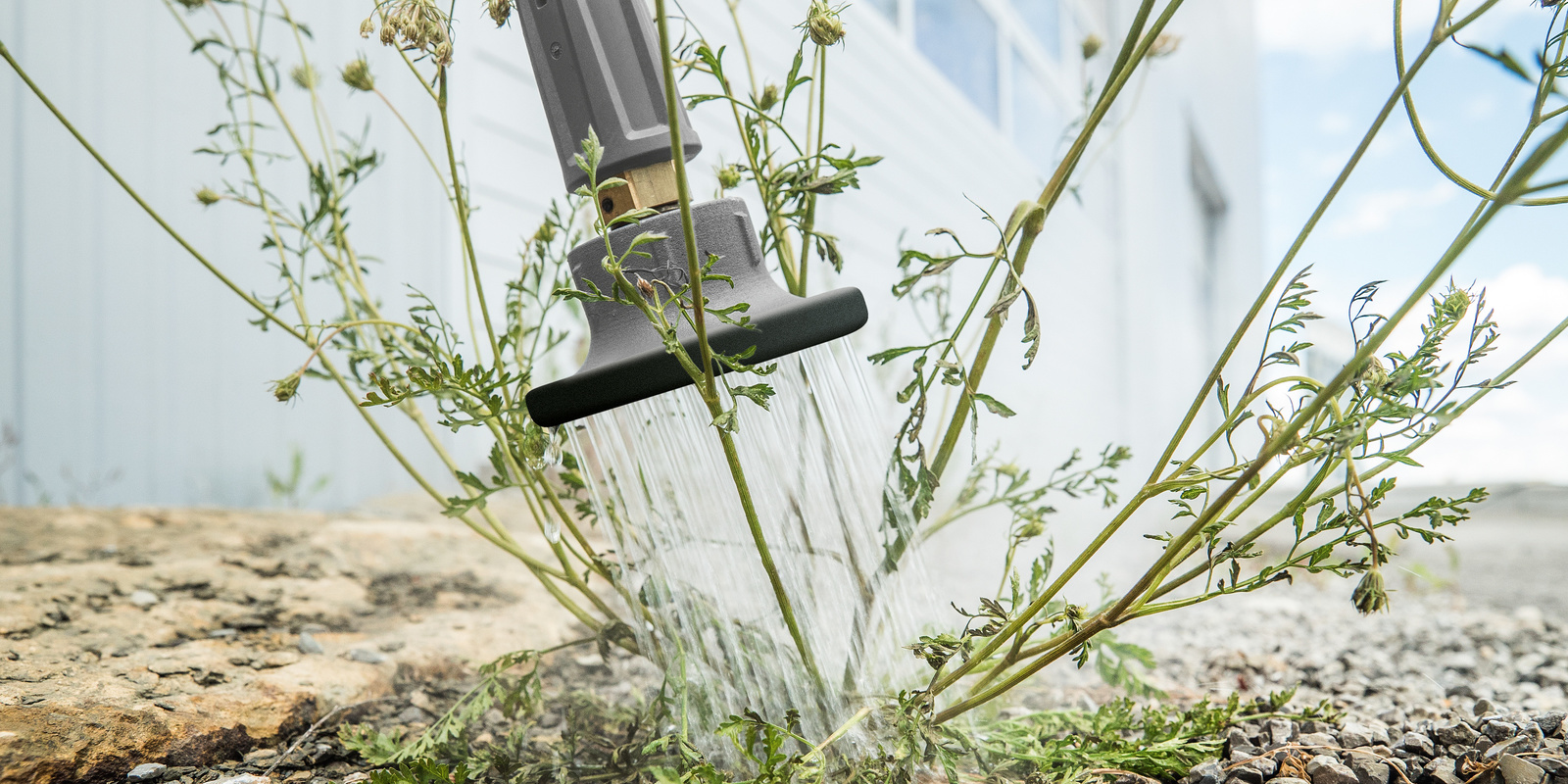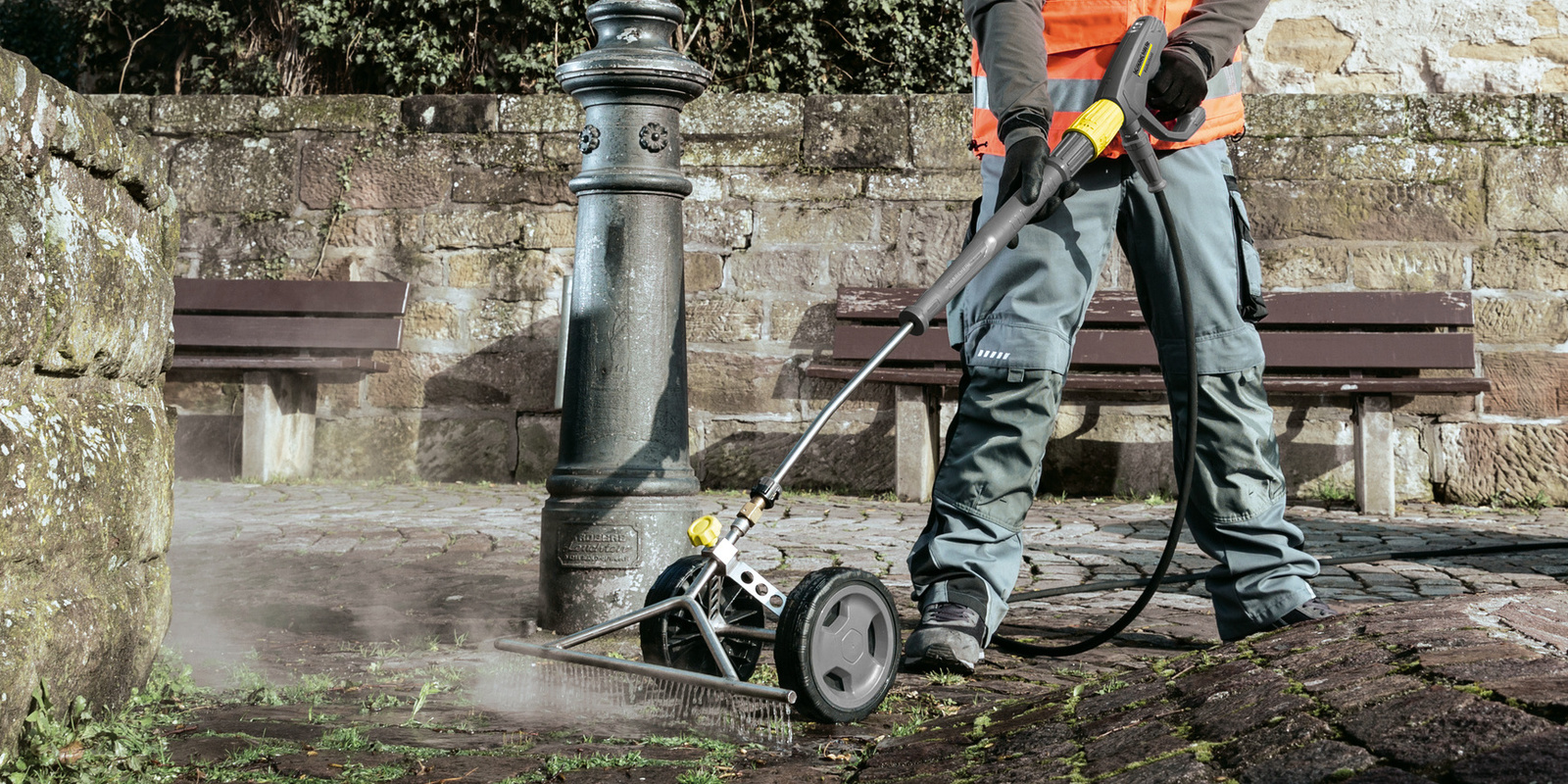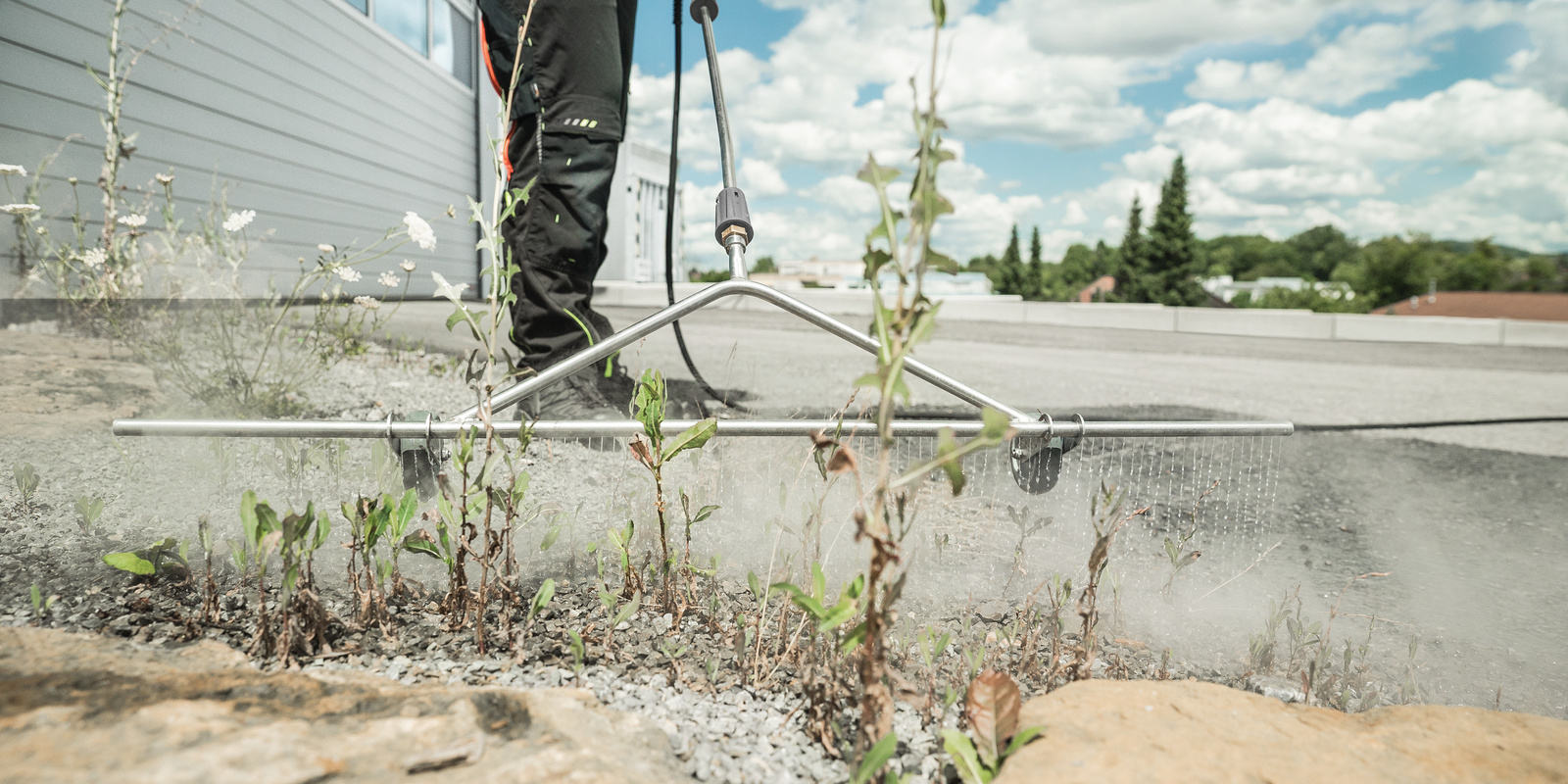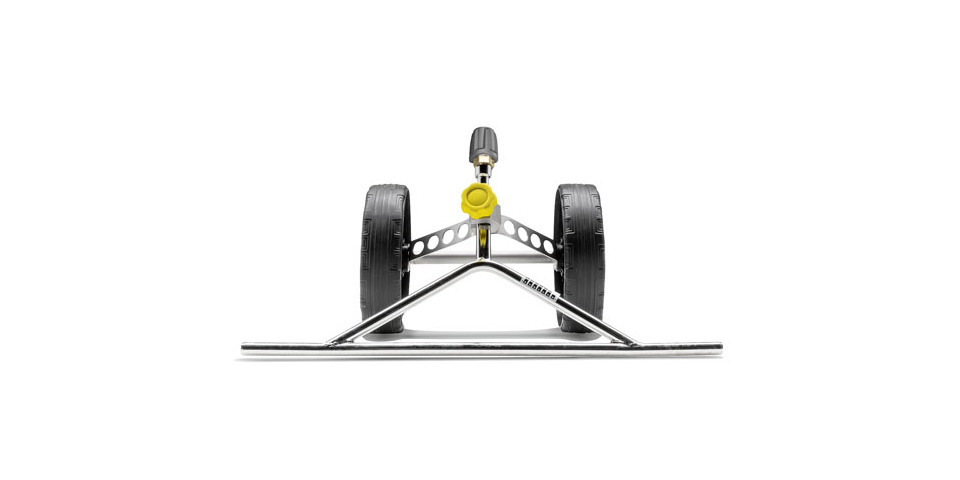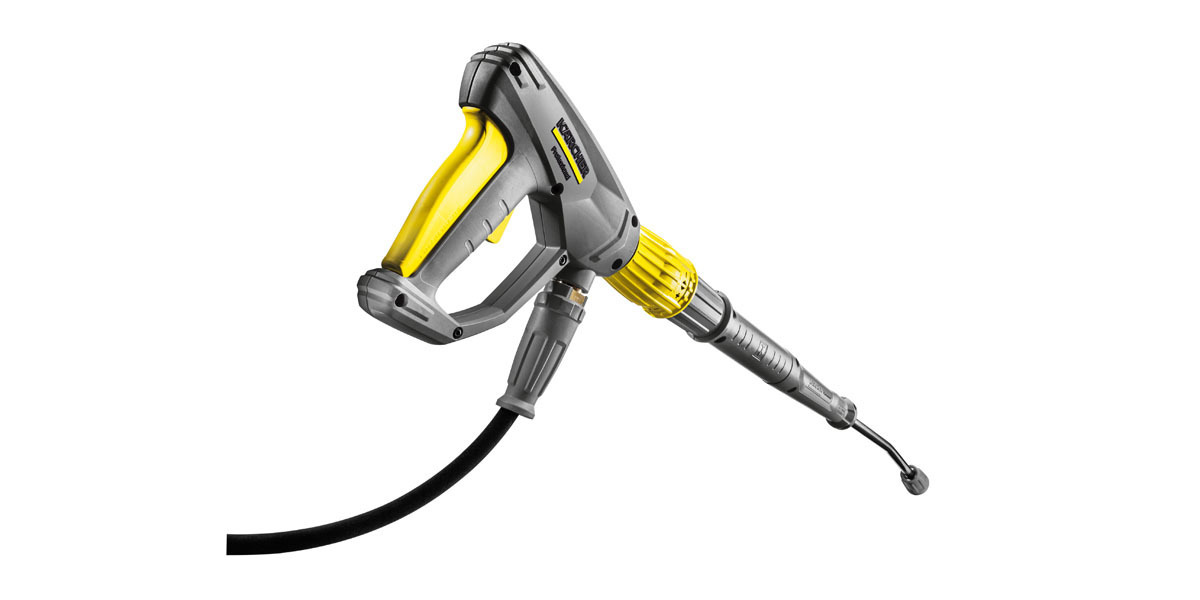Removing weeds
Countering weeds effectively is a major challenge in municipalities and agriculture. Chemical products are available, but they are often harmful to the environment and can only be used in a limited way in public spaces. Hot water can be used to remove dandelions, thistles, etc. without the use of herbicides – a much gentler process for the environment and for surfaces.
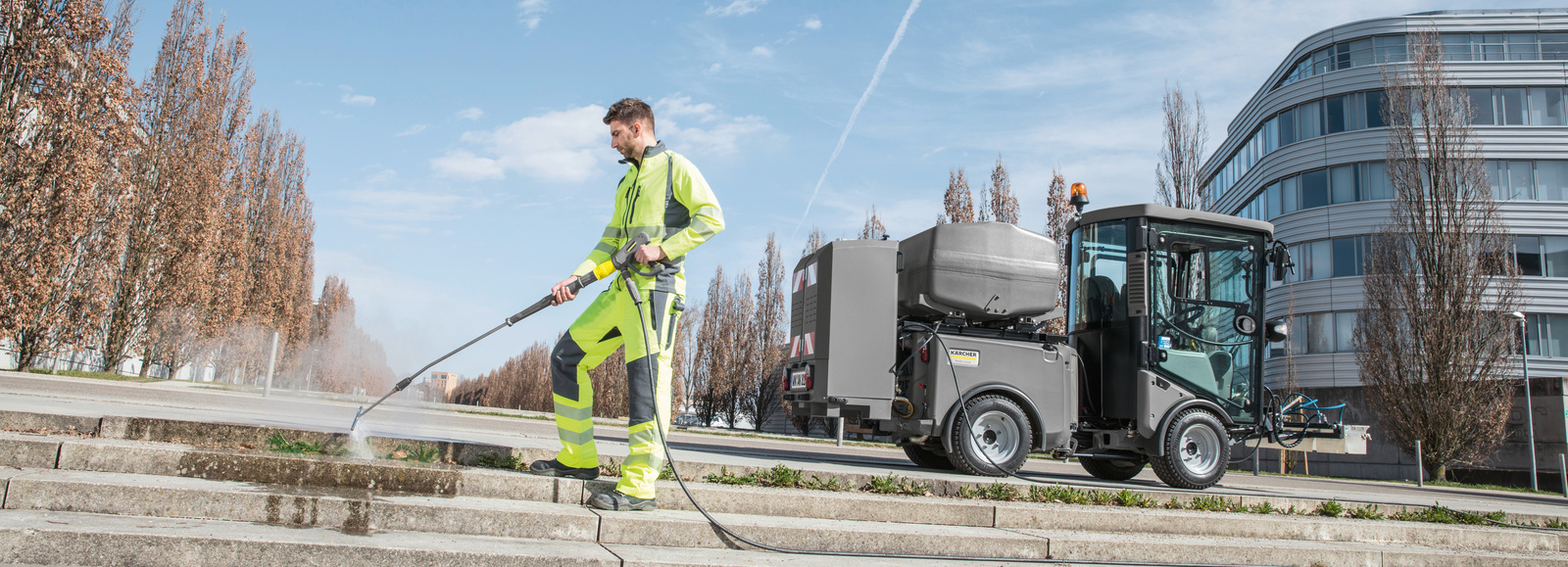
Reasons for weed removal
Unlike cultivated and ornamental plants, weeds are plants that grow naturally without human intervention. There are many good reasons to control weeds: In agriculture, to protect crops. In towns and cities, to keep public spaces clean and tidy and to prevent damage to roads, open spaces and buildings.
Many weeds can spread extremely quickly and/or cause severe damage with their roots. They also have a negative impact on the desired aesthetics.
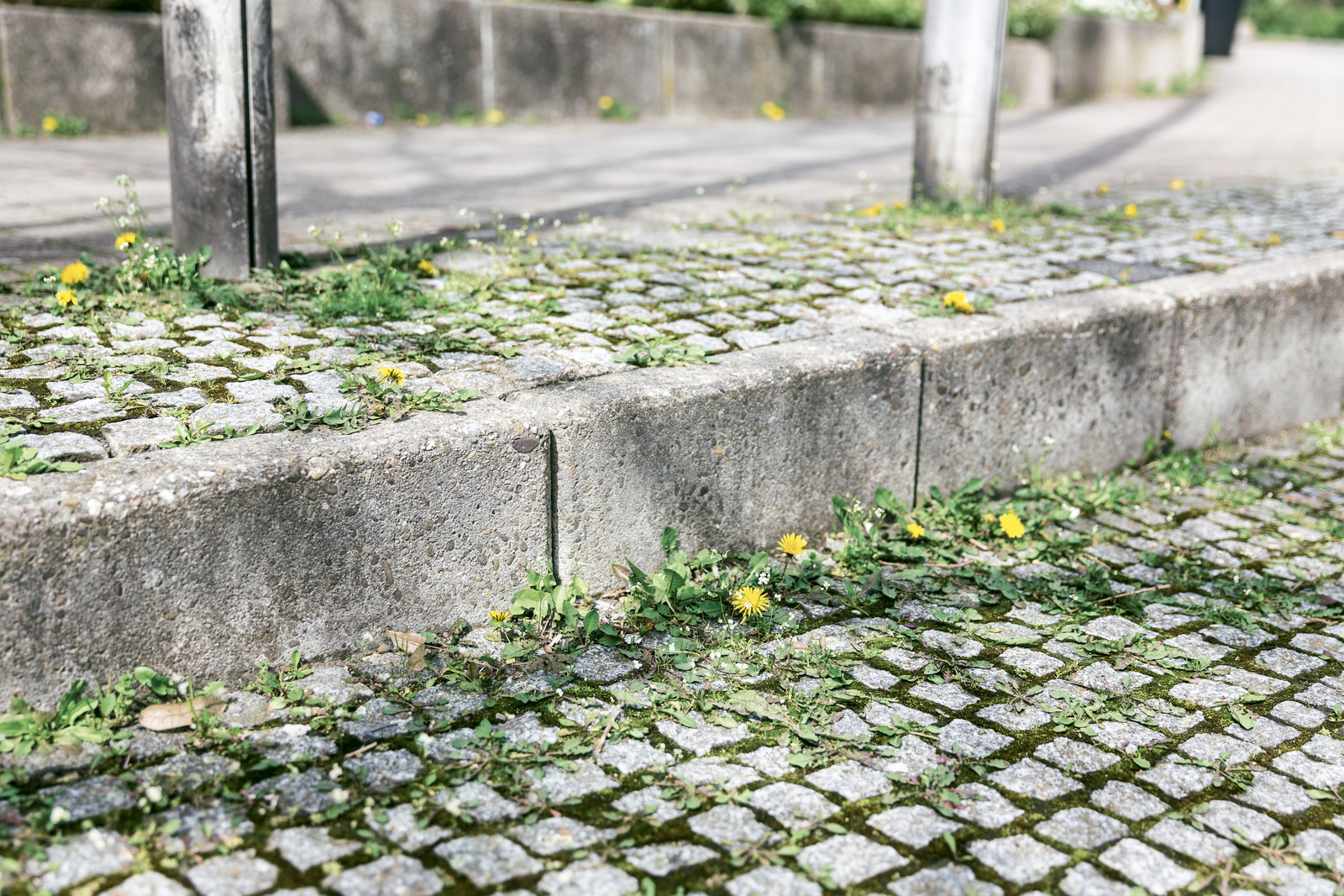
Overview of treatment methods
Thermal, mechanical and chemical methods can be used to destroy weeds. These methods differ, among other things, in terms of their environmental impact, sustainability and effectiveness. An overview of treatment methods:
Type of method
Hot water machines
Thermal
Hot foam machines
Thermal
Hot steam machines
Thermal
Hot air machines
Thermal
Flame devices
Thermal
Weed brush
Mechanical
Spray method
Chemical
Properties
Hot water machines
Up to 98 °C
Kill the parts of plants above ground and the roots below using hot water.
Hot foam machines
> 100 °C
Steam cleaner with additional foam production. The foam is used for insulation purposes and is intended to prevent the steam from cooling too quickly.
Hot steam machines
> 100 °C
Kill the parts of plants above ground. However, heat transfer from steam is nowhere near as effective as that from hot water. Roots are not effectively attacked.
Hot air machines
> 350 °C
Kill weeds using intense heat from hot air.
Flame devices
> 400 °C
The plants are heated using burning gas, causing them to die and partially burn.
Weed brush
Weed brushes and strimmers remove the plants from the roots.
Spray method
Herbicide is applied to the leaves using a spray unit.
Environmental impact
Hot water machines
Low
Hot foam machines
Moderate
Hot steam machines
Low
Hot air machines
Moderate
Flame devices
High
Weed brush
Low
Spray method
Very high
Effect
Hot water machines
Plants and roots are weakened and destroyed, including the seeds.
Hot foam machines
Plants are weakened and destroyed. Limited penetration.
Hot steam machines
Plants are weakened and destroyed. Limited penetration.
Hot air machines
Surface growth is destroyed. Limited penetration.
Flame devices
Surface growth is burned. Limited penetration.
Weed brush
The parts of plants above ground are removed using a steel brush. No penetration
Spray method
Herbicide weakens and destroys the cell structure of the plant down to the roots.
Noise exposure for users
Hot water machines
Low
Hot foam machines
Low
Hot steam machines
Moderate
Hot air machines
Moderate
Flame devices
High
Weed brush
Moderate
Spray method
Low
Special requirements
Hot water machines
Can be used on all surfaces, including critical and hard-to-reach areas.
Hot foam machines
Can be used on all surfaces, including critical and hard-to-reach areas.
Hot steam machines
Can be used on all surfaces, including critical and hard-to-reach areas.
Hot air machines
Ineffective in moist conditions.
Flame devices
Cannot be used in extremely dry conditions, ineffective in moist conditions.
Weed brush
Standard in public areas; achieves desired clean, smart look in towns and cities as the weeds are removed directly.
Spray method
Generally prohibited, may be used on paved and compacted areas only with special authorisation, certificate of expertise required.
Sustainability/effectiveness
Hot water machines
High
Hot foam machines
High
Hot steam machines
Moderate
Hot air machines
Low
Flame devices
Low
Weed brush
Moderate
Spray method
High
Application frequency
Hot water machines
Up to four applications in the first year, decreasing the following year.
Hot foam machines
Up to four applications in the first year, decreasing the following year.
Hot steam machines
4–6 applications.
Hot air machines
Application must be repeated about every 4 weeks.
Flame devices
Application must be repeated about every 4 weeks.
Weed brush
Application must be repeated about every 4 weeks.
Spray method
Up to four applications in the first year.
Overall assessment
Hot water machines
*****
Hot foam machines
**
Hot steam machines
***
Hot air machines
**
Flame devices
**
Weed brush
***
Spray method
**
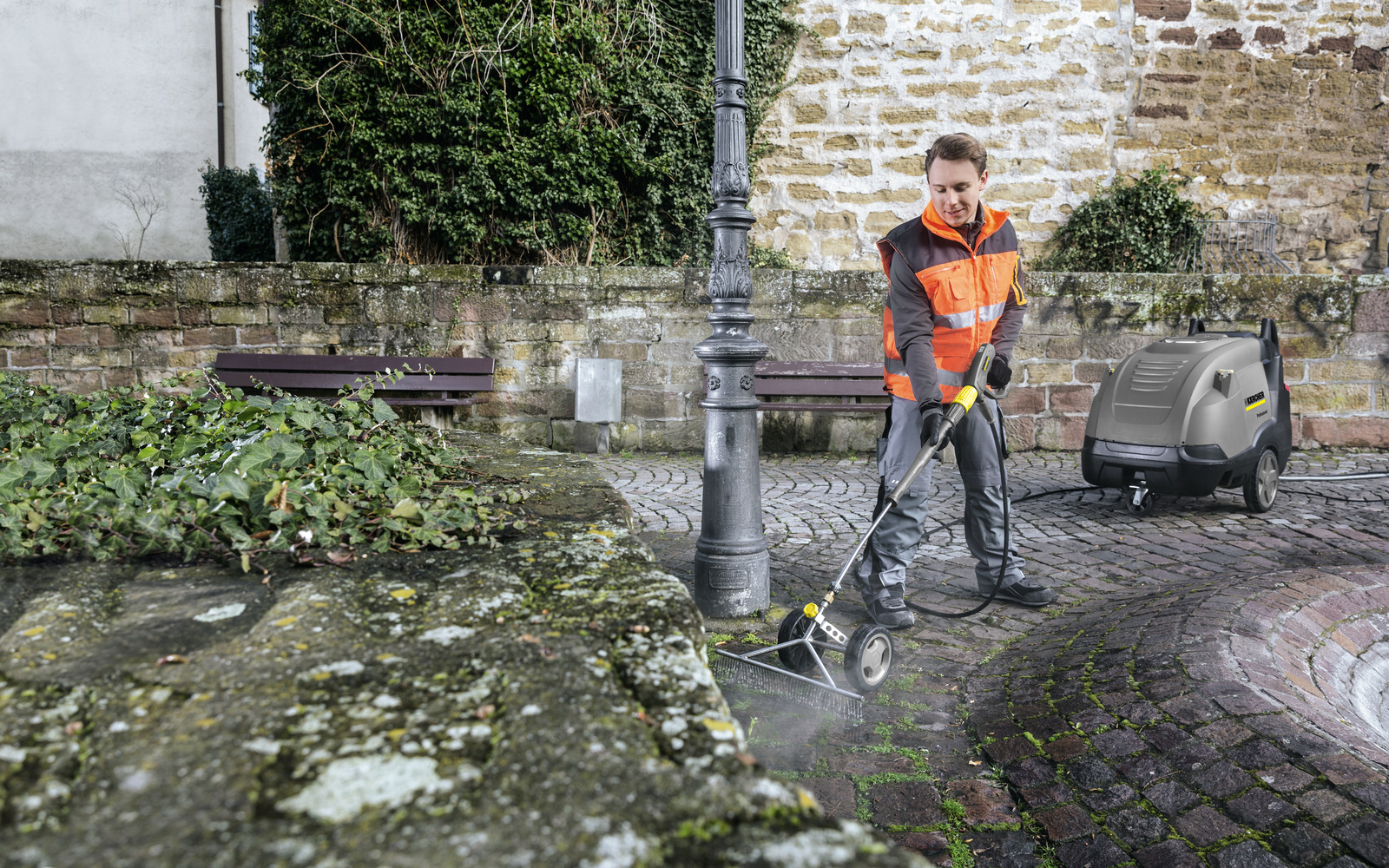
Weed removal with hot water: Effective and environmentally friendly
The overview of treatment methods shows: Weeds can be removed effectively using various thermal methods. The principle of thermal weed control is based on a basic biochemical rule: Most proteins denature from a temperature of around 42 °C. This means that the proteins change, break up and are no longer able to fulfil their functions.
The heat required for this can be generated and converted in different ways: As a direct flame or indirectly via thermal radiation, as hot water or steam. Hot water is the only chemical-free method that also reaches the roots. Even if the roots are not immediately completely destroyed, the weed is further weakened with each application of hot water. If it is regularly applied right from the beginning, regrowth is impeded and the application frequency will significantly decrease as early as the second year. As a rule of thumb, three to four treatments a year are sufficient.
Tip: The right time to use this method
The best time to remove weeds is in the afternoon. The amount of water stored by plants varies depending on the time of day. It is best to start with the first hot water application shortly after the weeds have sprouted in spring. This is because as plants get older, they become more resistant to hot water.
Use of hot water high-pressure cleaners
The critical factor when removing weeds with hot water is the temperature: The hotter the water, the more efficiently the plants can be eliminated. Hot water high-pressure cleaners can offer a consistent water temperature of up to 98 °C, which is just under the steam limit and is therefore ideal.
Weed removers are ideal accessories. Depending on the size of the surface and required use, these vary in terms of working width and area performance.
Tip: Distance between nozzle bar and surface
The optimal distance between the nozzle bar of the Kärcher weed remover and the surface is between 5 and 15 centimetres. It is possible to work comfortably within this range without the weed remover touching the ground. It also means that the loss of water temperature as the water travels to the surface is minimal.


